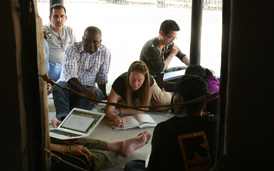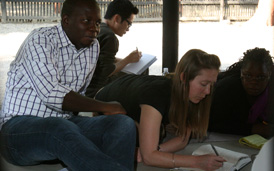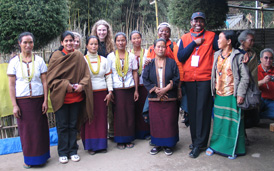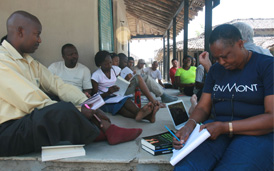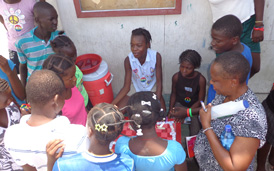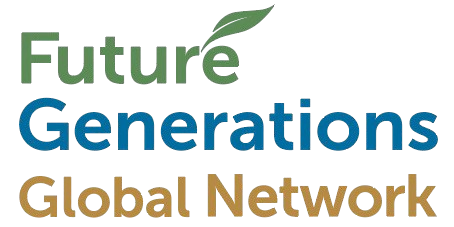Future Generations University Alumni
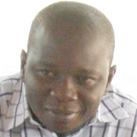 ONYEIZU UCHENNA, CLASS OF 2014
ONYEIZU UCHENNA, CLASS OF 2014
Practicum Summary: Transmission of Indigenous Knowledge and Practices in Nigeria: The role in sustainable yam production.
Uchenna’s study focused on the channels of transmission of indigenous knowledge and practices for promoting sustainable yam production in Nigeria, and the methods used to learn these practices. In Nigeria, the yam, which is consumed by the majority of the Nigerian population, is considered an important contributor to food security and reducing poverty. However, after the discovery of crude oil, stakeholders in Nigeria’s economic development began to neglect agricultural food production, which was once the mainstay of the Nigerian economy. Using a three-pronged approach including a literature review, a case study of the Bawri Community, and the Uchenna’s personal experiences, Uchenna conducted a research study addressing the future of the yam in the economy and health of the Nigerian people. The study revealed that the annual New Yam Festival, held at the end of each rainy season, is a key channel and opportunity for the transmission of indigenous knowledge of yam production. In order to sustain the transmission of yam production knowledge between the older generation and the younger generation, Uchenna believes that the government should take on the role of enabling systems and events to facilitate the transfer of information.
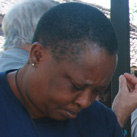 MICHAEL PATRICIA, CLASS OF 2013
MICHAEL PATRICIA, CLASS OF 2013
Practicum Summary: Upsurge in Criminal Activities in Nigeria
Patricia Michael’s research practicum examines three peace-building initiatives that were implemented to reduce social tensions and crises, improve relationships, reduce poverty, and sustain peace in the Kwale community of the Niger Delta region of Nigeria. The primary objective of this study is to analyze the contribution of the peace-building programs, and determine the reasons behind the increase in criminal activity in spite of these peace building initiatives. Using qualitative and quantitative data collection methods including questionnaires, individual interviews, review of the peace initiative documents, and person observation, Patricia determined that the EU-MPP3 peace initiatives achieved its initial objectives, but other programs such as the USAID CALM program were terminated due to a lack of funding and the electoral violence in 2007. Therefore, the USAID CALM project was unable to succeed in its peace-building goals. In addition, Patricia’s research concluded that the increased rate of criminal activity was a result of irresponsible and insensitive leadership, bad governance,unemployment, greed on the part of the youth, poor upbringing, and poverty. Michael recommends life and technical skills training programs for youth so that they may access jobs in the oil industry, inclusion of compulsory peace education in schools, and off-farm trainings.
 UDOH IKWO JOHN, CLASS OF 2005
UDOH IKWO JOHN, CLASS OF 2005
Practicum Summary: Academy Community Readiness for Change
In his research, IkwoUdoh analyzes data collected among the Eguns in Makoko, located in the Lagos Mainland Local Government of Lagos State. The study employed an entry point for community readiness for change survey in order to measure the ability of members in the Egun community to act together, transformative energy among the community, the community’s readiness for positive change, and the community’s ability to sustain a change process. In addition, Udoh wanted to identify an an entry point for beginning a change process in the community as a whole. In this study, Udoh found that illiteracy was very high in the community, and basic education and healthcare were the areas in greatest need of intervention. Using statistical data to analyze social factors, it was discovered that although transformative energy was found among the community, those living in the community were unable as to what their immediate problems were, the Egun community were at the level of vague awareness on the community readiness continuum, and the community required a change process focused on building community capacity to motivate leadership and prepare the community for action. Ultimately, Udoh determines that beginning a process of change in unstable conditions would not be a waste of time or resources, for the transformative energy and faith need to move the community from one level to the next will translate into the community’s overall empowerment.

